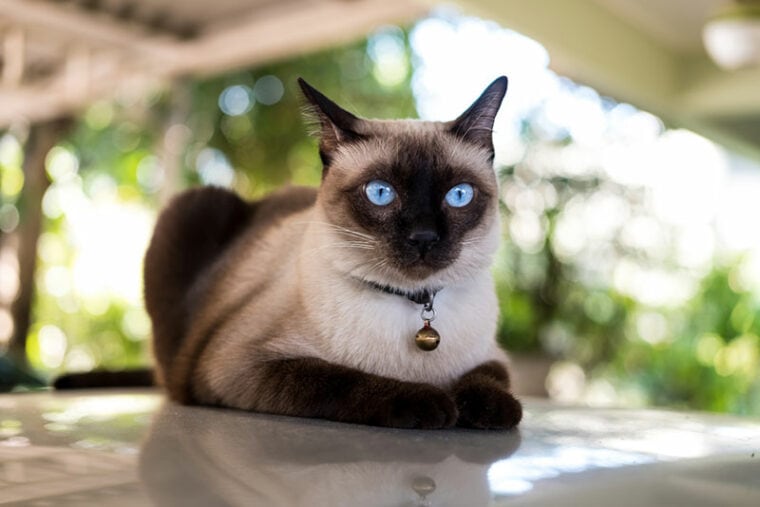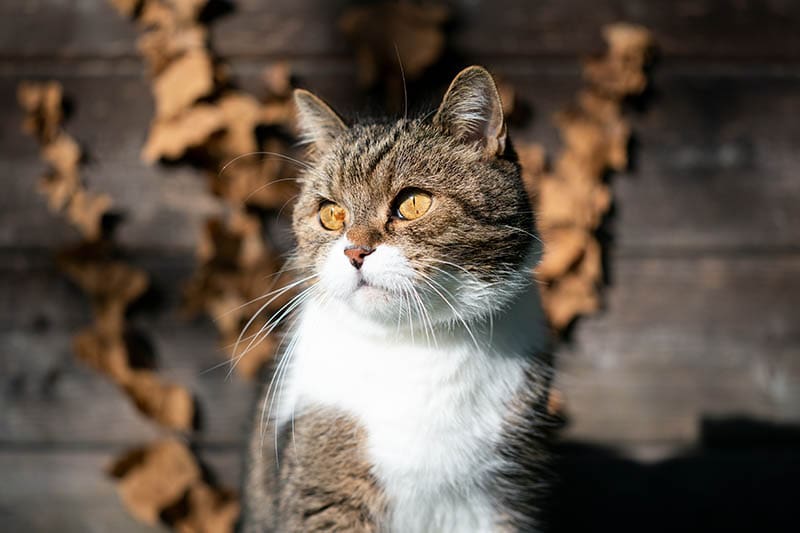
Click to Skip Ahead
Have you ever wondered if your cat would remember you if you had to leave home for a while? We form such powerful bonds with our cats, and it would be heartbreaking to find our cats have forgotten us when there’s been a separation.
The good news is that cats have short- and long-term memories that enable them to remember anything important. This includes you! It’s believed that cats can remember things for up to 10 years.
If you are interested in learning more about how the cat’s memory works and how well they actually remember things, read on!

A Cat’s Short-Term Memories
Short-term memory is also called working memory because it’s about remembering the most immediate events. Examples are when someone introduces themselves or gives you their phone number and how well you remember this a short time after.
Cats use short-term memory for daily problem-solving, enabling them to stay alert and remember something significant. This can help the cat survive.
Researchers from the University of British Columbia conducted a study in 2007, in which cats were put through a few tests.1 The cat’s leg movements and how they avoided obstacles were monitored, and it was discovered that some cats have a short-term memory of up to 24 hours or even higher! This is usually for things that are important to them, particularly food. It is what enables feral cats to relocate an area where they had a successful hunt earlier. Your cat will also always remember where you put their food bowl and what time dinner is.
This 2005 study tested cats on how well they remembered hidden objects. They found that some cats were able to remember an object up to 60 seconds after being hidden, but the accuracy typically declined in the first 30 seconds.2
Overall, cats are more likely to remember something that they have interacted with rather than just something that they have seen.

A Cat’s Long-Term Memories
A cat’s long-term memory is comprised of important information. While it isn’t at the forefront of their minds, cats are known to remember things for as long as 10 years.
Cats use their long-term memories to associate with environments, sounds, animals, and people, each with negative and positive experiences. A cat will remember their owner easily because of being fed and petted and having other positive experiences with them. Likewise, the cat will remember someone with whom they had a negative experience and avoid them. Similarly, your cat might go into hiding when it starts pouring rain because they might associate the rain with thunder if they have previously been through a severe thunderstorm. This is also why your cat will remember you if you’ve been away for an extended period of time.
Basically, cats will best remember events with strong emotional ties, but just like the rest of us, a cat’s memories fade to a certain degree over time.

Do Cats Carry Grudges?
A grudge comes from long-term memories, and while cats do have a long-term memory, they don’t exactly hold grudges the way that we do. They are more likely to avoid situations they associate with a bad memory rather than punish the perpetrator.
The worse the association, the longer the cat will remember it. So, if you accidentally step on your cat’s paw, they might hide from you for a bit but will come out for treats and scratches and forget about it shortly afterward.

Do Cats Remember Other Animals?
Cats do remember other pets like cats and dogs. Cats learn about the world around them through scent and can form strong bonds with other animals. How well they remember another cat depends on the length of time spent together and the strength of the relationship.
Cats have complex memories and relationships, but these associations, in combination with their strong sense of smell, definitely point to remembering other pets.

How Well Do Cats Remember Where They Live?
It depends on the cat. There have been several cases of cats traveling long distances to find their homes. A Persian cat named Howie traveled roughly 1,000 miles across the Australian outback over 12 months to get back home!
Cats have an excellent sense of direction, and their sense of smell helps a great deal.

When Cats Start to Lose Their Memory
Unfortunately, just like humans, as cats age, their memories start to decline. They can also experience dementia, which is a cognitive dysfunction syndrome (CDS) primarily affecting cats 10 years of age or older.
The following are signs associated with dementia:
A 2011 study found that CDS affects 1/3 of cats aged 11 to 14 with at least one of these conditions. The number of cats with signs of CDS increases to 50% of cats when they are 15 years or older.
What Can You Do to Protect Your Cat’s Memory?
To help protect your cat’s memory, they will benefit from exercise, an excellent diet, and plenty of mental stimulation. You can try interactive puzzles and slow feeders like a slow treat mat, which will make your cat use their brains and curiosity to solve puzzles. Also, spend time playing with your cat as much as possible.
Supplements for cats can decrease the risk of losing their cognitive skills. The following vitamins and minerals help with cognition:
If you believe that your cat is having memory issues, see your veterinarian, as they can help you with a diagnosis and offer appropriate treatment.

Conclusion
Overall, cats have good memories, particularly when it comes to food and anyone who treats them with love and feeds them. It’s not likely that your cat will remember someone they only met once, particularly if a great deal of time has passed since they met them.
How well a cat remembers anything depends on the individual cat, how much they experience strong emotions, and the level of the interaction.
Rest assured that as long as you treat your cat with love and spend time playing with them (and feeding them), your cat will remember you for a lifetime.
Featured Image Credit: Voraorn Ratanakorn, Shutterstock







